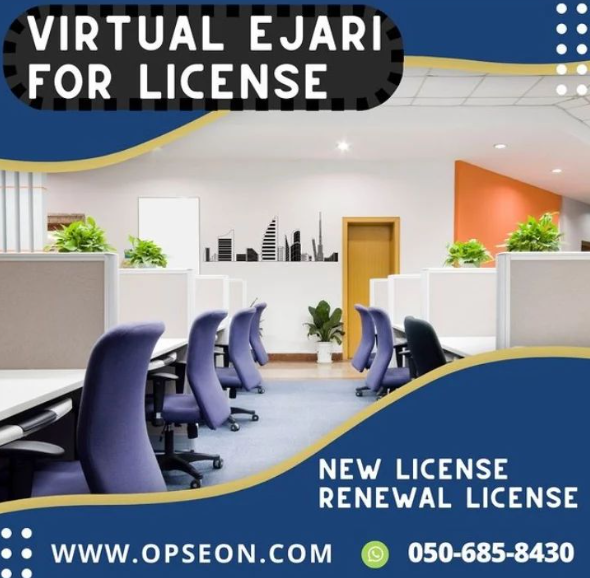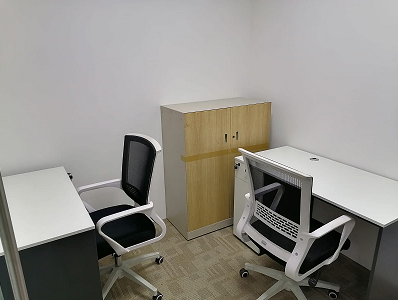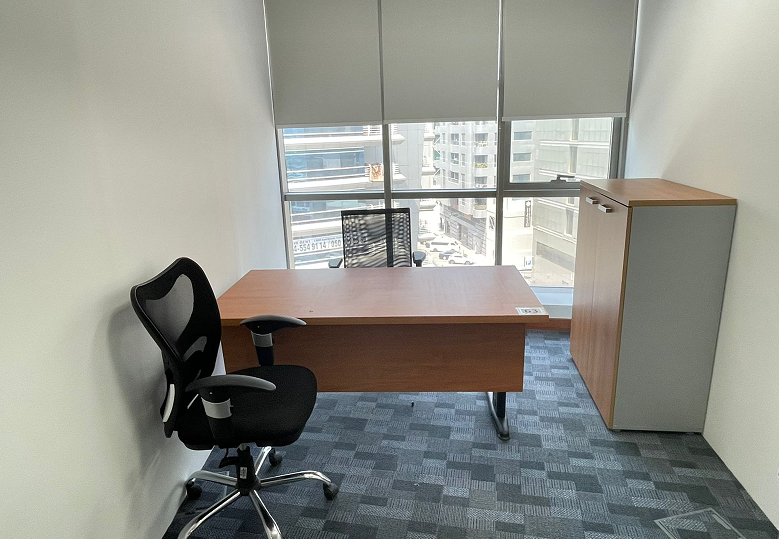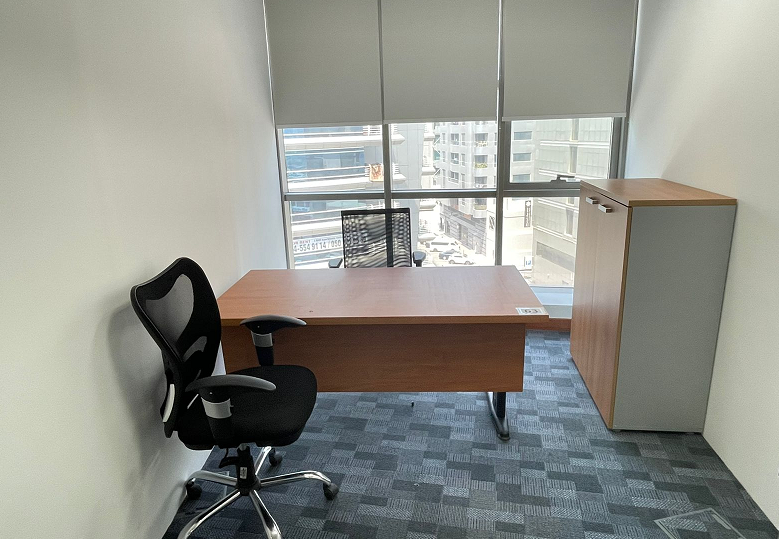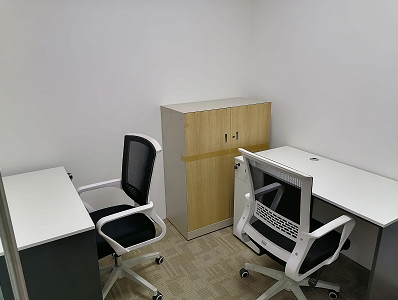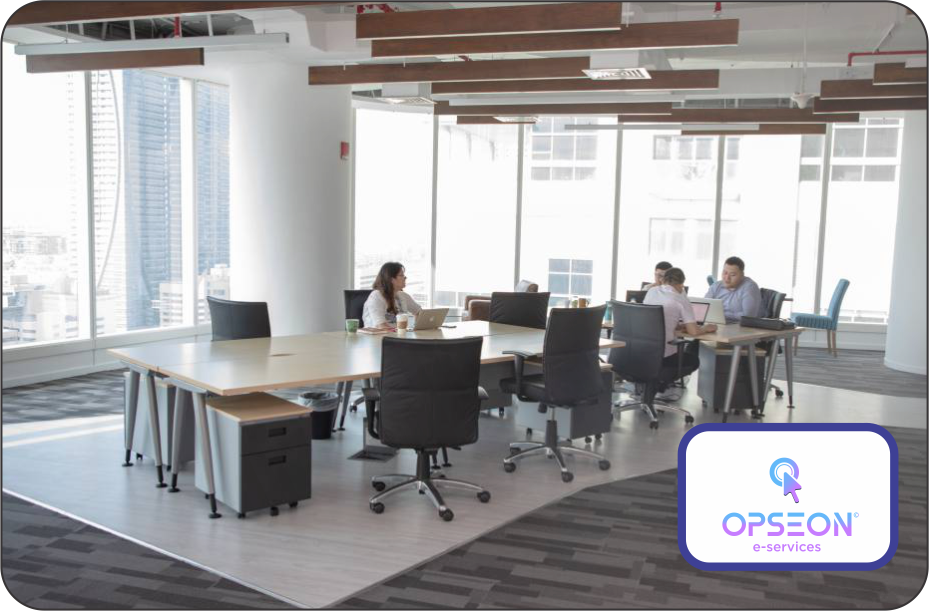Benefits of Co-working: Find Your Perfect Workspace in Dubai UAE

Blog Details
Benefits of Co-working: Find Your Perfect Workspace in Dubai UAE
In today's ever-evolving work environment, finding the perfect workspace is essential for productivity and success. Enter co-working spaces - the innovative solution that is revolutionizing the way we work. Whether you’re a freelancer, entrepreneur, or even part of a larger team, opseon co-working spaces offer a unique and inspiring atmosphere where collaboration thrives.
But what exactly is co-working? It's more than just shared office space from opseon. It's a vibrant community of like-minded professionals who come together to work, network, and grow. In this article, we will explore the multitude of benefits that co-working provides and how it can unlock new opportunities for your business.
What makes co-working spaces from AED1000 so beneficial? From cost savings and flexibility to increased creativity and access to a strong network, the advantages are remarkable. We'll delve into each of these benefits to give you a comprehensive understanding of why co-working may be the perfect fit for your business in dubai, Abu dhabi.
So, if you're ready to unlock the many advantages of co-working and find your ideal workspace from opseon, keep reading. Discover how these innovative spaces can transform the way you work and propel your business to new heights.
What is co-working
Co-working is a modern approach to workspace that involves individuals or small teams sharing a communal office environment. It provides a flexible alternative to traditional office spaces, catering to the needs of freelancers, startups, and remote workers. Co-working spaces are designed to foster collaboration, creativity, and productivity, offering a range of amenities and services to support professionals in their work.
These spaces typically feature open floor plans with dedicated desks or hot desks, meeting rooms, breakout areas, and shared facilities such as kitchens and communal areas. They are equipped with modern technology and high-speed internet access, ensuring that individuals can work seamlessly without any logistical barriers. Moreover, co-working spaces often prioritize aesthetics, creating environments that are visually appealing and conducive to focused work.
What sets co-working spaces apart is the sense of community they foster. They bring together professionals from various industries, creating opportunities for networking, collaboration, and skill-sharing. Co-working spaces are more than just physical spaces; they are vibrant ecosystems that encourage personal and professional growth.
The benefits of co-working
1. Cost savings
One of the most significant advantages of co-working is the cost savings it offers. Renting or leasing a traditional office space can be expensive, especially for small businesses or individuals. Co-working spaces provide an affordable alternative, allowing professionals to access well-equipped and fully furnished offices without the burden of long-term leases or high upfront costs. Additionally, many co-working spaces offer flexible membership options, allowing individuals to choose plans that align with their specific locations and budget.
By sharing resources such as office equipment, utilities, and amenities, individuals can significantly reduce their overhead expenses. This cost-effectiveness makes co-working spaces particularly attractive for startups and freelancers who want to minimize their financial risk while still enjoying a professional and collaborative work environment in multiple locations of dubai (port saeed, business bay, Al Gurhoud, Al GOuz, Jabel Ali, AL Barsha, DIC, DIP, Sheik Zayed, Deira areas and much more places suites your need.) .
2. Flexibility and scalability
Another key benefit of co-working is the flexibility it offers. Traditional office leases often require long-term commitments, making it challenging for businesses to adapt to changing needs and growth. Co-working spaces, on the other hand, provide the flexibility to scale up or down as required. Whether you need space for one person or a team of twenty, co-working spaces can accommodate your evolving needs without the hassle of relocation or renegotiating leases.
This flexibility extends beyond space requirements. Co-working spaces often offer 24/7 access, allowing individuals to work at their preferred times, whether they are early birds or night owls. Additionally, many co-working spaces have multiple locations, enabling professionals to work from different areas without any disruption to their routine. This flexibility promotes work-life balance and empowers individuals to work in a way that suits their unique preferences and schedules.
3. Increased creativity and collaboration
Co-working spaces are designed to foster a sense of community and collaboration. The diverse mix of professionals from different industries and backgrounds creates a dynamic environment that sparks creativity and innovation. By working alongside like-minded individuals, you gain access to a wealth of knowledge, expertise, and perspectives that can inspire and enhance your work.
Collaboration opportunities are abundant in co-working spaces. Whether it's through organized events, networking sessions, or impromptu conversations in communal areas, you have the chance to connect and collaborate with professionals who share your interests or complement your skills. This collaborative atmosphere not only fuels creativity but also opens doors to potential partnerships, projects, and business opportunities.
4. Access to a strong network
One of the most valuable benefits of co-working is the access to a diverse and extensive network. Co-working spaces attract professionals from various industries and backgrounds, creating a rich ecosystem of potential contacts and collaborators. By joining a co-working community, you gain the opportunity to connect with individuals who can provide insights, mentorship, or even become clients or customers.
Co-working spaces often organize events, workshops, and networking sessions to facilitate connections and knowledge sharing. These events not only help you expand your network but also provide valuable learning and growth opportunities. Additionally, many co-working spaces have online platforms or directories where members can showcase their skills, services, or products, further enhancing visibility and networking possibilities.
5. Enhanced work-life balance
Co-working spaces promote a healthy work-life balance by providing an environment that is separate from the distractions and responsibilities of home. Working from home can often blur the boundaries between work and personal life, making it challenging to switch off or maintain focus. Co-working spaces offer a dedicated and professional workspace that helps individuals establish a clear separation between work and personal life.
Moreover, co-working spaces often provide amenities such as wellness rooms, gyms, or meditation areas, allowing individuals to take breaks and recharge. These spaces prioritize well-being and mental health, recognizing the importance of balance and self-care in achieving long-term success.
6. Professional development and learning opportunities
Co-working spaces are not just about work; they are also about personal and professional growth. Many co-working spaces organize workshops, seminars, and skill-sharing sessions to help members enhance their skills, expand their knowledge, and stay up-to-date with industry trends. These learning opportunities can cover a wide range of topics, from marketing and entrepreneurship to design and technology.
Moreover, being part of a co-working community exposes you to professionals with diverse expertise and experiences. This proximity to different skill sets and backgrounds can inspire you to learn from others, seek feedback, and continuously improve. Co-working spaces provide a fertile ground for personal and professional development, fostering a culture of lifelong learning and growth.
Co-working statistics and trends
Co-working has experienced significant growth in recent years, driven by changing work patterns and the increasing popularity of remote work. According to a report by Coworking Resources, there were approximately 22,400 co-working spaces worldwide in 2019, serving over 2.2 million members. This number is projected to reach over 40,000 spaces and 5 million members by 2024.
The rise of co-working has also influenced the real estate industry, with landlords and property developers recognizing the demand for flexible workspaces. Many traditional office buildings now include co-working spaces, allowing them to attract a broader range of tenants and adapt to evolving market needs.
Another notable trend in the co-working industry is the emergence of niche co-working spaces. These spaces cater to specific industries or communities, further enhancing collaboration and synergy among members. For example, there are co-working spaces exclusively for artists, tech startups, or social entrepreneurs. This specialization allows professionals to connect with others who share their passions and work in an environment tailored to their specific needs.
How to choose the right co-working space
With the abundance of co-working spaces available, choosing the right one for your needs can be overwhelming. Here are some factors to consider when selecting a co-working space:
1.Location: Consider the proximity to your home or target market. A convenient location can save you commuting time and allow for easy access to clients or networking events.
2.Amenities and facilities: Assess the amenities and facilities offered, such as high-speed internet, meeting rooms, printing services, or event spaces. Ensure that the space provides everything you need to work efficiently.
3.Community and culture: Research the community and culture of the co-working space. Look for spaces that align with your values, interests, and goals. Visit the space and interact with members to get a sense of the community dynamics.
4.Flexibility and scalability: Evaluate the membership options and plans available. Ensure that the space can accommodate your current and future needs, allowing for easy expansion or downsizing.
5.Cost: Compare the pricing structures and membership fees of different co-working spaces. Consider the value provided in relation to the cost.
By considering these factors, you can find a co-working space that aligns with your requirements and enhances your work experience.
Setting up your workspace in a co-working environment
Once you've chosen a co-working space, it's essential to set up your workspace in a way that maximizes productivity and comfort. Here are some tips to create an optimal work environment:
1.Personalize your space: Add personal touches to make your workspace feel like your own. Bring in a plant, artwork, or photos that inspire you and create a sense of belonging.
2.Ergonomics: Ensure that your desk and chair are ergonomically designed to support good posture and reduce the risk of discomfort or injury. Consider investing in an adjustable desk or ergonomic accessories if needed.
3.Organization: Keep your workspace organized and clutter-free. Use storage solutions such as shelves, drawers, or filing cabinets to maintain a tidy and efficient workspace.
4.Noise management: Co-working spaces can be lively and bustling, which may be distracting for some individuals. Invest in noise-canceling headphones or find a quiet corner of the space if you need a focused environment.
5.Respect shared spaces: Remember that co-working spaces are shared by multiple individuals. Be mindful of others and maintain cleanliness and orderliness in communal areas. Follow any specific guidelines or rules set by the co-working space.
By setting up your workspace thoughtfully, you can create an environment that promotes productivity, focus, and well-being.
Networking opportunities in co-working spaces
Networking is a significant advantage of co-working spaces. Here are some strategies to maximize networking opportunities:
1.Attend events: Participate in the events and networking sessions organized by the co-working space. These events provide opportunities to connect with other professionals and expand your network.
2.Be proactive: Take the initiative to introduce yourself to others and strike up conversations. Approach networking with a genuine interest in learning from others and building mutually beneficial relationships.
3.Collaborate on projects: Look for opportunities to collaborate with fellow members on projects or initiatives. By working together, you can build meaningful connections and leverage each other's skills and expertise.
4.Utilize online platforms: Many co-working spaces have online platforms or directories where members can connect virtually. Make use of these platforms to showcase your skills, seek collaborations, or offer support to others.
5.Offer your expertise: Share your knowledge and skills with others in the co-working community. Offer to facilitate workshops or share insights in areas where you have expertise. This positions you as a valuable resource and helps establish your credibility.
By actively engaging in networking activities, you can tap into the vast potential of the co-working community and open doors to new opportunities.
Co-working vs traditional office spaces
Co-working spaces differ significantly from traditional office spaces. Here are some key distinctions:
1.Flexibility: Co-working spaces offer more flexibility in terms of lease agreements, space requirements, and working hours. Traditional office spaces often involve long-term commitments and fixed working hours.
2.Cost: Co-working spaces are generally more cost-effective than traditional office spaces. Traditional office spaces require significant upfront costs for rent, utilities, and furniture, whereas co-working spaces provide a more affordable alternative.
3.Community and collaboration: Co-working spaces foster a sense of community and collaboration, encouraging members to connect, share knowledge, and collaborate. Traditional office spaces may lack this community aspect, resulting in a more isolated work environment.
4.Amenities and services: Co-working spaces often provide a wide range of amenities and services, such as high-speed internet, meeting rooms, event spaces, and networking events. Traditional office spaces may have limited amenities and require additional expenses to set up and maintain.
5.Scalability: Co-working spaces offer the flexibility to scale up or down as needed, accommodating changing business requirements. In contrast, traditional office spaces may involve the hassle of relocating or renegotiating leases when scaling operations.
Ultimately, the choice between co-working and traditional office spaces depends on your specific needs, preferences, and the nature of your work.
Co-working membership options and pricing
Co-working spaces typically offer various membership options to cater to different needs and budgets. Here are some common membership options:
1.Hot desk: A hot desk membership provides access to any available desk in the co-working space. This option offers flexibility and is suitable for individuals who prefer variety or have unpredictable schedules.
2.Dedicated desk: A dedicated desk membership provides a designated desk that is exclusively yours. This option offers more stability and allows you to personalize your workspace.
3.Private office: Private office memberships offer a fully enclosed office space, providing privacy and the ability to customize the space according to your needs. This option is suitable for larger teams or individuals who require a quiet and private workspace.
4.Virtual office: Virtual office memberships provide a professional business address, mail handling services, and occasional access to co-working spaces or meeting rooms. This option is suitable for individuals who primarily work remotely but require a professional image and occasional access to physical spaces.
Membership pricing varies depending on factors such as location, amenities, and membership type. Monthly fees typically range from a few hundred dirhams to a few thousand dirhams. It's important to consider the value provided in relation to the cost and choose a membership option that aligns with your requirements and budget.
Co-working etiquette and best practices
When working in a co-working space, it's essential to follow certain etiquette and best practices to ensure a harmonious and productive environment. Here are some guidelines to keep in mind:
1.Respect others' space: Be mindful of others' personal space and belongings. Avoid using or moving someone else's belongings without permission.
2.Maintain cleanliness: Keep your workspace and communal areas clean and tidy. Clean up after yourself in

















